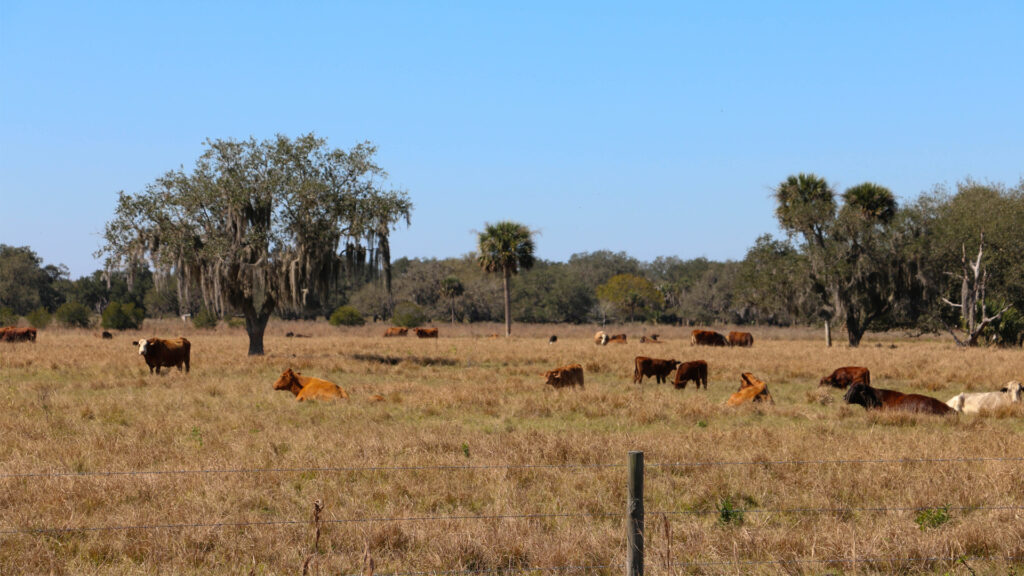A roundup of news items related to climate change and other environmental issues in Florida:
Hundreds of Florida ranchers push for conservation easements to prevent climate change | Fox 13 Tampa Bay

The cows, fields and farms in Florida are often overshadowed by beaches and waterways, but a growing group of ranchers say preventing red tide, blue-green algae and even sea level rise could start with preserving ranches and farms.
“If we believe in climate change, if we believe in rising sea levels, a lot of those ranch lands are going to be part of the answer,” said Jim Strickland, a rancher and one of the leaders of Florida Conservation Group.
Strickland and hundreds of other ranchers are pushing for more conservation easements where the state pays the rancher what their land would be worth to developers. In turn, the rancher commits to keeping the land as green space forever.
Transit advocates to protest Florida’s rejection of $320 million in funding | WLRN
South Florida transit and environmental organizations are set to protest the state’s decision to turn down $320 million in federal funding for transportation projects aimed at reducing tailpipe emissions.
Florida’s Department of Transportation last month declined the influx of cash meant for public transit and traffic projects — because the funding was tied to climate change initiatives that state officials thought were too political.
The $320.4 million earmarked for Florida was part of the Federal Highway Administration’s Carbon Reduction Program — an initiative to reduce harmful emissions specifically from the nation’s roadways.
The private equity firm tapping America’s spring water | Bloomberg News
Ginnie Springs is a true Florida oasis. Ringed by towering cypress trees, the spring-fed pools off the Santa Fe River in Gilchrist County draw thousands of visitors every year to swim and cool off in their turquoise waters.
It’s also big business. For years, a local operator has been pumping the water to sell to bottlers, despite evidence of declining flows. Years of extraction have led the water district to label the lower Santa Fe River basin as “in recovery.”
“There’s way less vegetation. The river has shrunk. You don’t see as many turtles. You don’t see as many fish,” said Ryan Smart, executive director of the Florida Springs Council, an advocacy group that fights to limit bottling. “It’s like watching a family member get sick.”
If you have any news items of note that you think we should include in our next roundup, please email The Invading Sea Editor Nathan Crabbe at ncrabbe@fau.edu. Sign up for The Invading Sea newsletter by visiting here.



